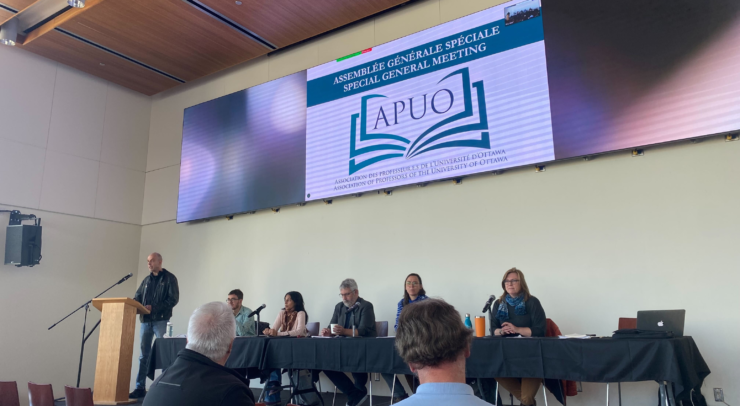UNIVERSITY OF OTTAWA administration has teamed up with the Student Academic Success Service (SASS), the Office of Institutional Research and Planning, and the vice president of academics in an attempt to help French-speaking students from predominantly English-speaking regions better adapt to university-level French courses.
Sylvie Lamoureux, an associate professor at the Official Languages and Bilingualism Institute at the U of O, conducted a study to determine the importance of high school language classes for the future success of students. Her study progressed from exclusively English region Francophone students to include English students from families whose maternal language is neither French nor English.
“Through the study,” she said, “we discovered that not only do good grades in high school contribute to success at university, but that good grades in high school language courses account for about a third of the variability in success at university.”
Francophone students coming from predominantly English regions struggled in their mandatory first year French-language classes. They tried to assimilate into a Francophone setting—comprised of Francophones from Eastern Ontario or Quebec—where French is spoken more widely and differently than in Southern Ontario.
“Three or four years ago we started meeting a lot of students from these areas,” said Alain Malette, a U of O administrator involved with the study. “We started asking what their challenges were. Some of these challenges that were being identified kept coming back to language courses.”
Albert Brunet, a third-year student at the U of O, is a member of the university’s mentoring program formed, in part, to address the struggles of linguistic minorities making the transition to university life.
The mentoring program, which is part of SASS, sends student mentors from the U of O to different regions of the country where they make first contact with potential new students in February after they have received their acceptance letters. They support them through the first year of university. All first-year students are eligible for mentoring and upwards of 2,000 of them are considered to be actively engaging with their mentors this year.
“When I was a student, a mentor came to my school and offered his help,” Brunet said. “First year is really challenging, and it was really comforting to know someone.
Brunet said that in his experience, the importance of high school language courses is highly underestimated.
“It was extremely challenging in my first French class, which was my worst class in my whole university career so far,” Brunet said. “There were different expressions and the level of French was much higher.”
The U of O administration hopes to work more closely with high schools to emphasize the importance of language courses in high school and the consequences of poor performance once students reach university.





